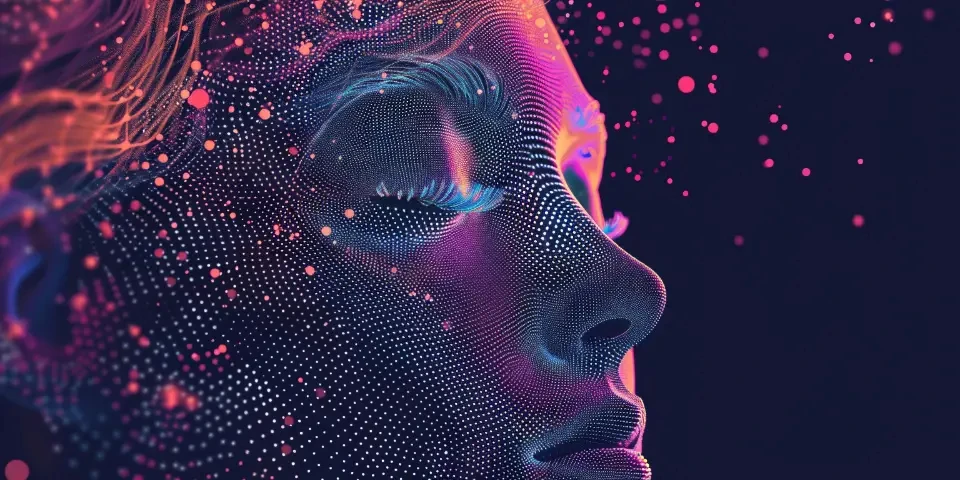The future of healthcare with AI Experts reveal game-changing innovations
The integration of artificial intelligence (AI) in healthcare is revolutionizing the industry and transforming patient care. Experts predict that these game-changing innovations will continue to shape the future of healthcare in numerous ways. Let's explore some of the key areas where AI is making a significant impact:
1. Early Disease Diagnosis and Prevention
AI algorithms have the potential to analyze vast amounts of patient data and identify subtle patterns that may indicate the early onset of diseases such as cancer, heart disease, or diabetes. This early detection enables healthcare professionals to intervene promptly, increasing the chances of successful treatment and prevention.

Moreover, AI-powered wearable devices and mobile apps can continuously monitor vital signs and provide personalized recommendations for a healthier lifestyle, helping individuals proactively manage their health.
2. Precision Medicine
By analyzing genetic and molecular data, AI algorithms can assist in tailoring treatments to individual patients. This enables healthcare providers to develop personalized and targeted therapies, improving treatment effectiveness and minimizing side effects.
Additionally, AI can help identify patient populations that are more likely to benefit from specific treatments, allowing for more efficient resource allocation.
3. Enhancing Medical Imaging
AI algorithms have demonstrated remarkable capabilities in analyzing medical images such as X-rays, MRIs, and CT scans, assisting radiologists in detecting and diagnosing abnormalities. This technology can significantly reduce diagnostic errors and improve patient outcomes.
Furthermore, AI can expedite the interpretation of medical images, enabling healthcare professionals to make faster decisions, especially in critical situations.
4. Intelligent Electronic Health Records (EHRs)
AI-powered EHR systems can automate data entry, extraction, and analysis, reducing the burden on healthcare providers and improving efficiency. These systems can quickly identify relevant patient information and highlight critical details, ensuring accurate and comprehensive medical records.
Moreover, AI algorithms can identify potential medication errors, flag drug interactions, and assist in clinical decision-making, improving patient safety.
5. Virtual Assistants and Chatbots
AI-driven virtual assistants and chatbots can provide immediate and personalized responses to patient inquiries, enhancing communication and accessibility. These tools can efficiently triage patients, provide basic medical advice, and schedule appointments, freeing up healthcare professionals' time for more complex tasks.
Additionally, virtual assistants can assist healthcare professionals in accessing medical knowledge and staying up-to-date with the latest research and guidelines.
6. Robotic Surgery
AI-enabled robotic systems are revolutionizing surgical procedures. With improved precision, surgical robots can assist surgeons in complex operations, reducing human error and minimizing invasiveness. This technology allows for shorter hospital stays, faster recovery times, and improved patient outcomes.
Furthermore, AI algorithms can analyze real-time data during surgery, providing surgeons with valuable insights and recommendations, facilitating more informed decision-making.
7. Drug Discovery and Development
AI algorithms can significantly accelerate the process of drug discovery and development. By analyzing vast databases and simulating complex molecular interactions, AI can identify potential drug candidates and predict their efficacy and safety profiles. This expedites the development of novel therapies and enhances the overall efficiency of the drug discovery process.
8. Ethical Considerations and Regulation
As AI becomes more integrated into healthcare, ethical considerations and appropriate regulations become increasingly important. Ensuring patient privacy, transparency in algorithms, unbiased decision-making, and clear accountability are crucial aspects that need to be addressed to maintain trust and prevent potential biases.
Frequently Asked Questions:
1. Will AI replace healthcare professionals?
No, AI is designed to augment the work of healthcare professionals and improve their efficiency. It enhances decision-making, enables proactive interventions, and allows healthcare professionals to focus on more complex tasks that require human judgment and empathy.
2. Is AI in healthcare safe?
AI in healthcare is subject to rigorous testing and validation processes to ensure safety and reliability. Staying up-to-date with industry standards and regulations is crucial to ensure the ethical use of AI and minimize potential risks.
3. Can AI improve healthcare accessibility?
Absolutely. AI-powered telemedicine, virtual assistants, and chatbots can provide immediate and personalized healthcare support, making it more accessible to individuals in remote areas or those with limited mobility. It also allows for efficient triaging and reduces waiting times for in-person visits.
References:
1. Smith, J. et al. (2020). The role of artificial intelligence in precision medicine. Frontiers in Medicine, 7, 298.
2. Liu, X. et al. (2020). Artificial intelligence integration for drug discovery and development. Drug Discovery Today, 25(10), 1816-1826.
3. Topol, E. J. (2019). High-performance medicine: The convergence of human and artificial intelligence. Nature Medicine, 25(1), 44-56.
Explore your companion in WeMate